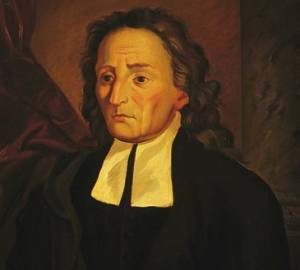Profile: Giambattista Vico
The Neapolitan philosopher Giambattista Vico (1668-1744) is one of those thinkers of whom much is heard and little is read. Perhaps because he has been depicted mainly as the forerunner of other, more famous thinkers (especially Hegel and Herder), and as following established currents of thought, many acknowledge his contribution to the history of Western philosophy, but few actually read his writings. Still, this relegation to the periphery of the philosophical canon reflects somehow the unorthodox character of his life and of his scholarly achievements, which, as Gramsci stated, moved from “a small, dead corner of history.”
Vico spent his life tormented by indigence and illness. Nevertheless, he succeeded in gaining a vast, comprehensive erudition in law, philology, and philosophy, as he worked as a lawyer, a tutor, and a professor of rhetoric at the University of Naples. He believed it a fundamental trait of human nature that we long for knowledge. Why that is the case, however, is unknown to us: we can only observe that it is so. There are limits, in other words, to that which we can know.
In De antiquissima Italorum sapientia (On the Most Ancient Wisdom of the Italians, 1710) we find Vico’s most forceful expression of this realisation: “verum ipsum factum” – only that which is made by the human being can be known in depth. Exhaustive knowledge can be gained only in the human sciences. Human beings cannot know the reasons which lie behind the existence of the realities they observe in nature; so only a partial, hypothetical knowledge is possible of those things of which the human being is not the author. Human reason is severely limited when dealing with the understanding of the natural world, whose author is, presumably, God.
Vico was writing against the well-established intellectual faith of his time, which proclaimed the natural sciences as the highest expression of human reason (logic and mathematics were included in this privileged disciplinary group). Vico intended to defend the humanistic tradition with its curriculum of studies comprising classical literature, jurisprudence, history, oratory, and foreign languages. Throughout his writings, Vico tried to show how human reason cannot work ahistorically, as a pure, neutral instrument of discovery, one which does not depend upon the motives, aims, expectations, and prejudices of people. For Vico, the truth may be achieved, but not by letting reason operate in the void – context is required.
In his best-known work, The New Science (1725), Vico stresses the centrality of culture in and for any intellectual endeavour, the natural sciences included. Knowledge relies upon understanding, and, in turn, understanding relies upon tacit beliefs, which are the result of the history of one’s personal development within a variously-layered historical reality. Sensus communis (common sense) is, for Vico, the fundamental ground out of which all forms of human knowledge spring and to which, ultimately, they are bound to return. Sensus communis, in his words, is “judgement without reflection, shared by an entire class, an entire people, an entire nation, or the entire human race.”
This fundamental cultural ground is contained already in the myths, traditions, and poetical metaphors of human culture. They anticipate, inform, and sustain any explicit act of intellectual scrutiny of reality, thus providing the implicit background justifying the choice, worth, and communicability of inquiry. For Vico, much modern scientific knowledge is contained already in the allegories of poetry, the insights of religion, the images of art. Moreover, these involve an ability of which science is devoid, namely the ability to address and involve in the cognitive process the human body and the human heart.
In his New Science, Vico specifies a fundamental “dialectical” structure regulating the historical development of human knowledge. This structure can be represented as a moving spiral of occurrences and recurrences (corsi e ricorsi storici), along which moments of collapse and of regress in the human understanding of the universe are as unavoidable as the overall progress of the human species from the bestial state to the civilised state. For Vico, history repeats itself, but never in an identical fashion, and always along a necessary path of amelioration, which adds new steps to the old ones, and never erases any. Taken as a whole, human culture advances through the centuries in the same fashion as the individual person matures through the years. Both start from the “age of the senses” (or “divine age”), and, via the “age of fantasy” (or “heroic age”), they reach the “age of reason” (or “human age”), yet without ever discarding completely either that which had been previously experienced by means of the “non-“ or “pre-rational” faculties, or these faculties themselves.
Baruchello, Giorgio. “Profile: Giambattista Vico.” 08/2009. <http://philosophypress.co.uk/?p=585>.
